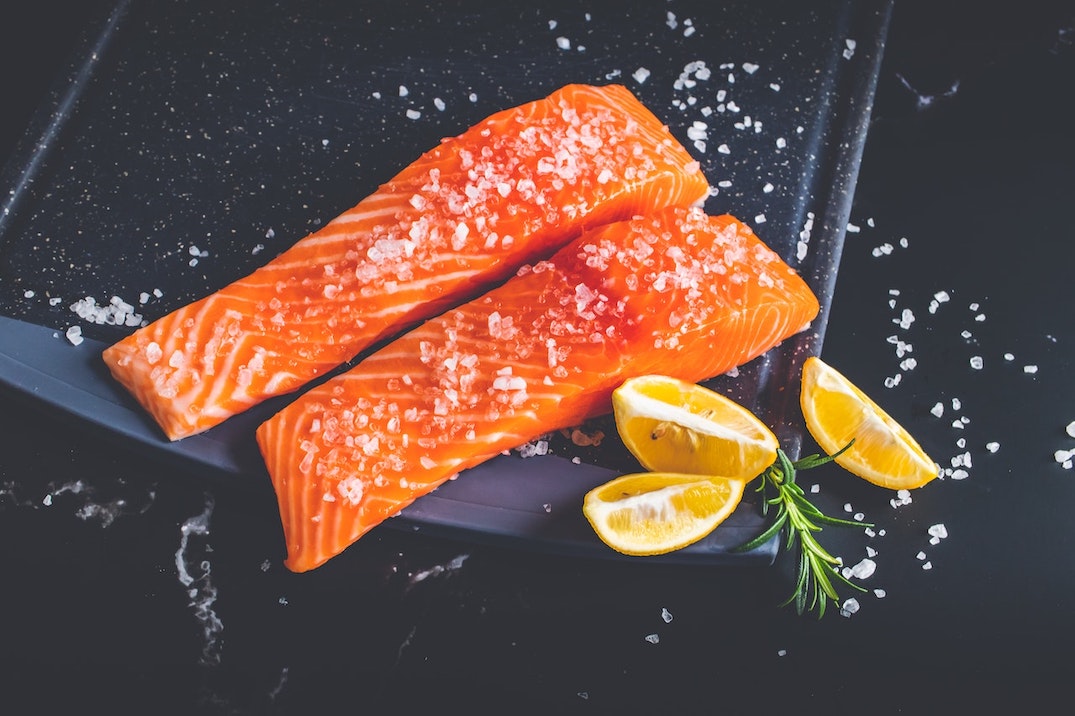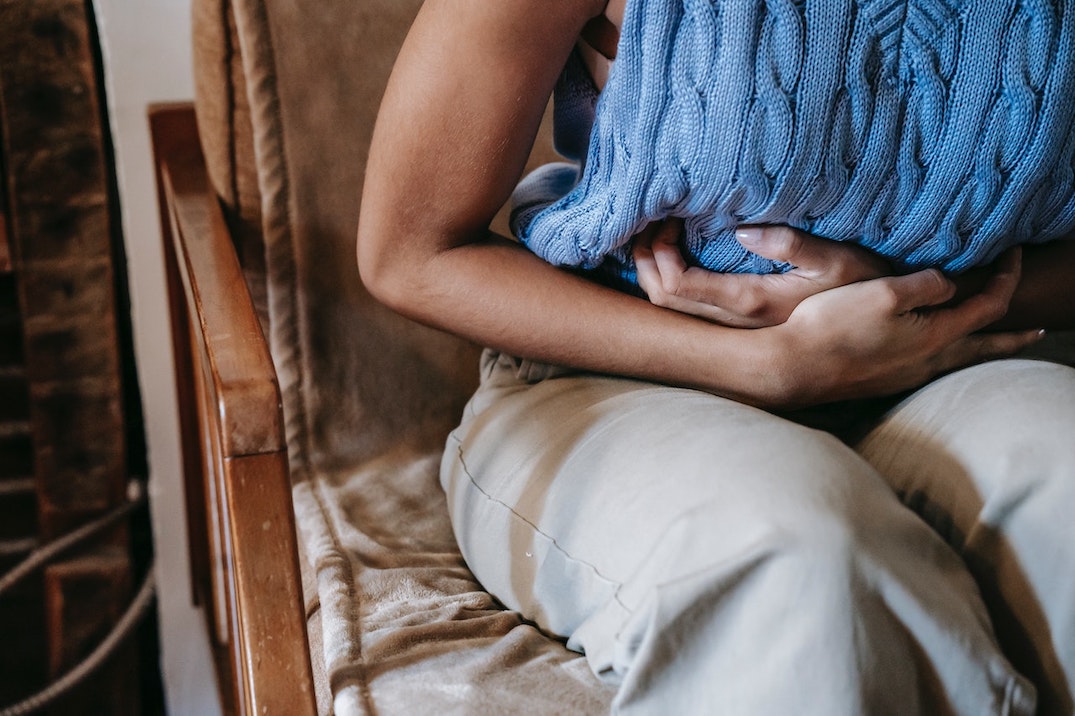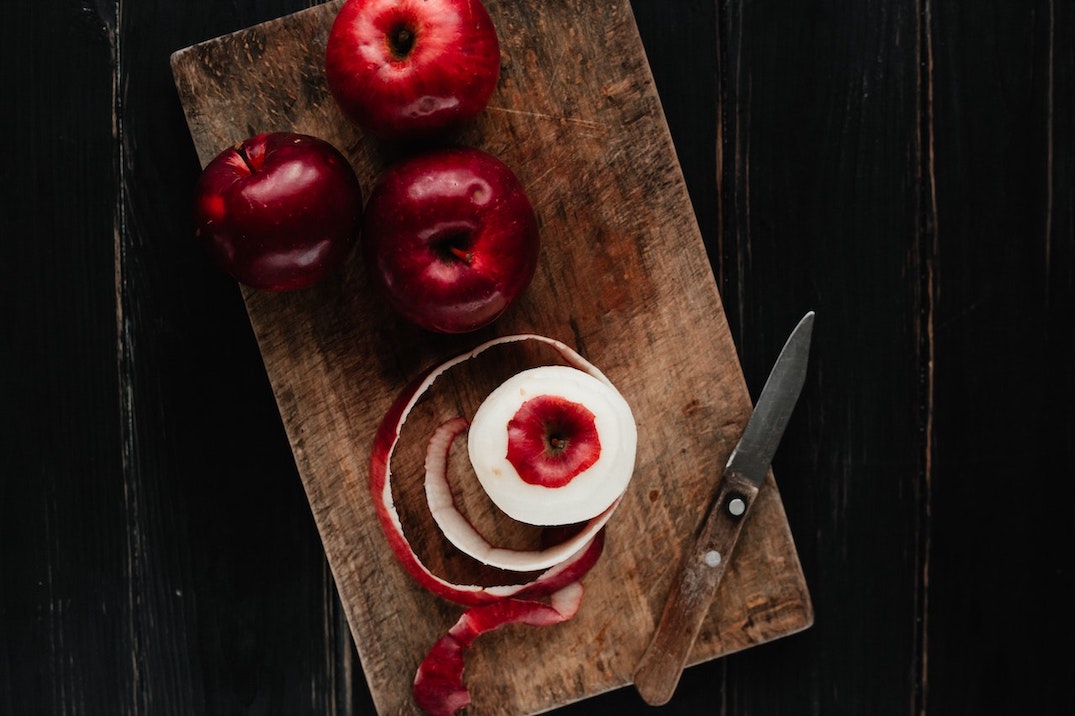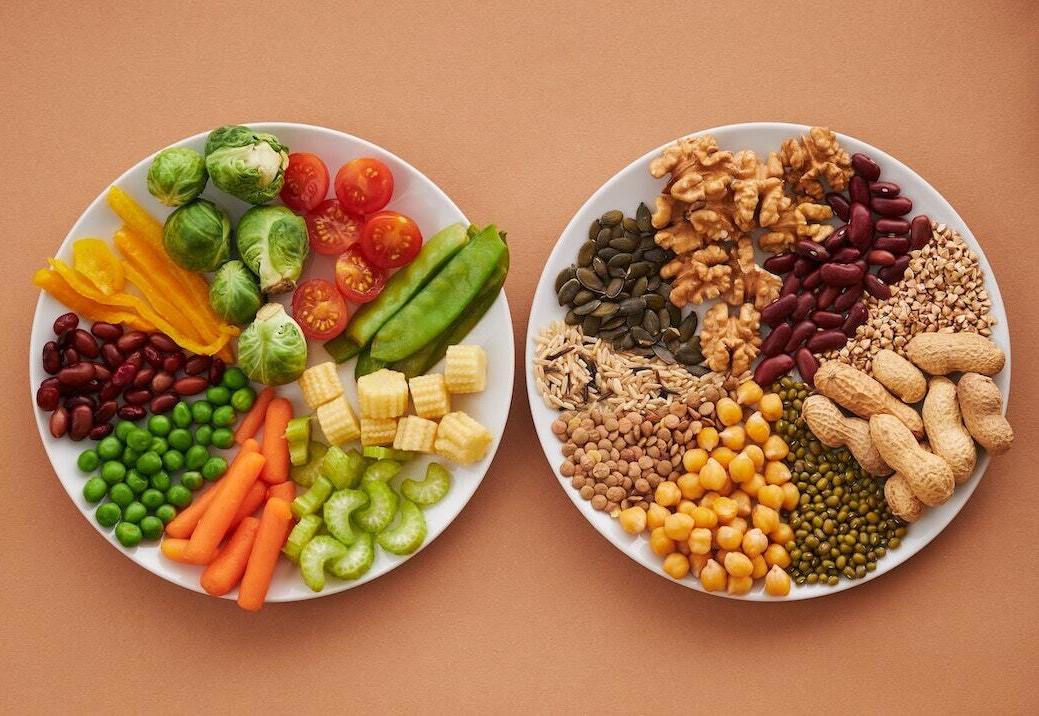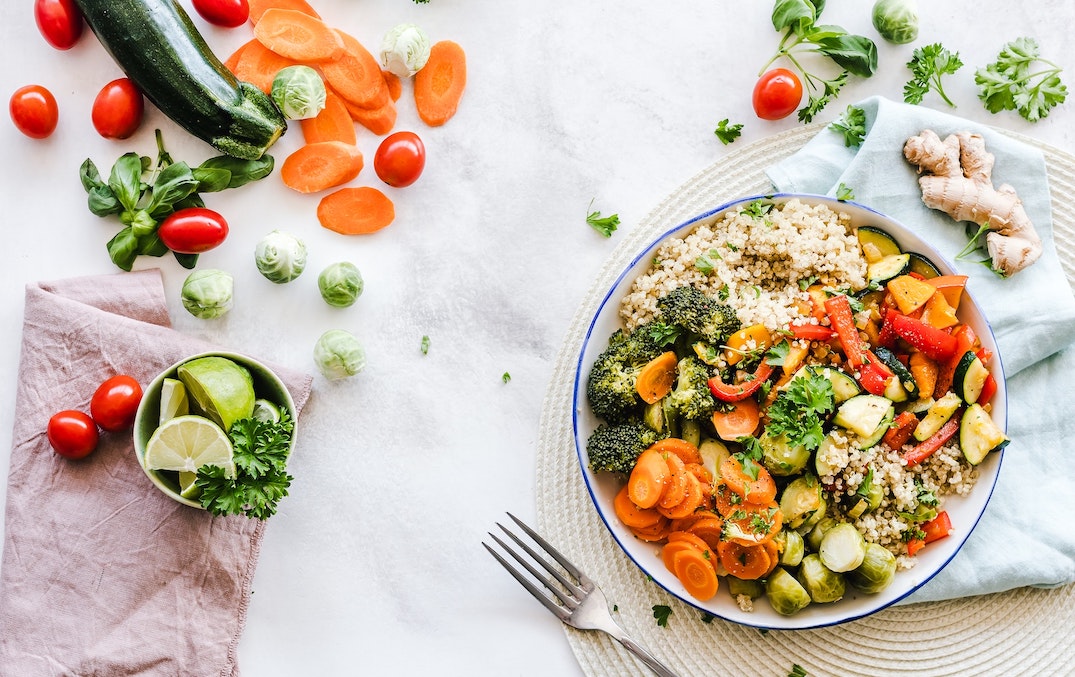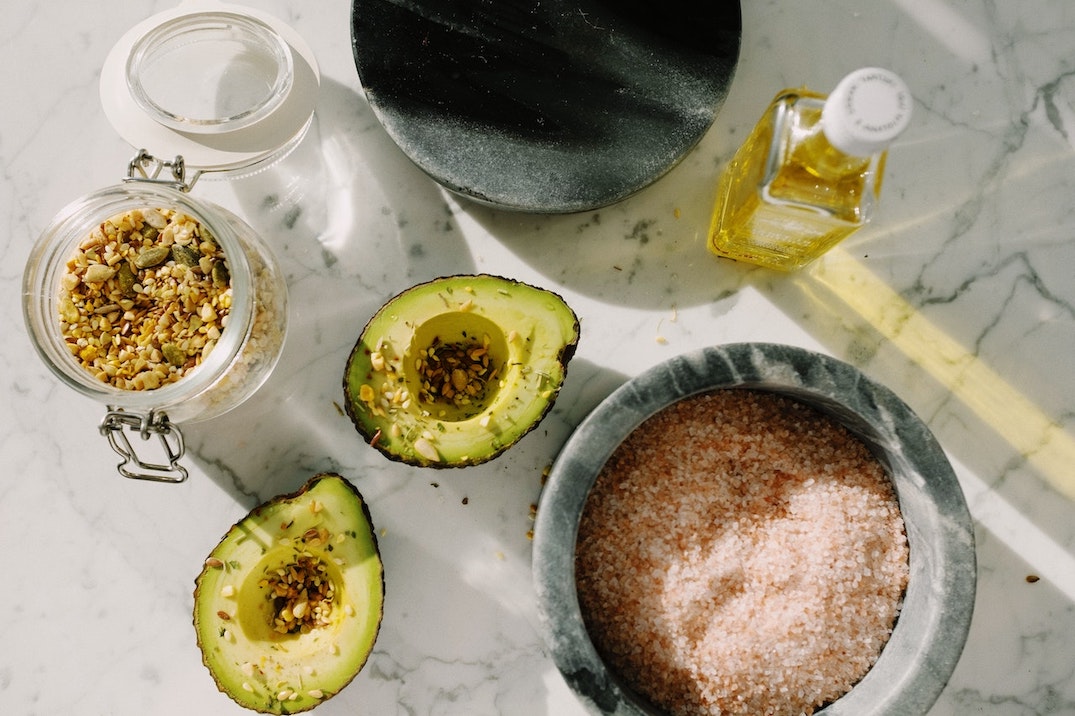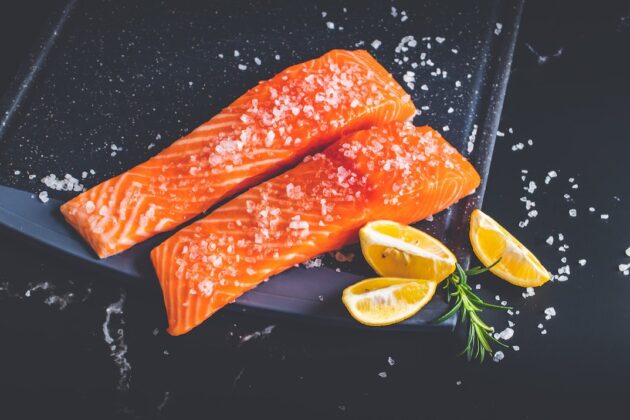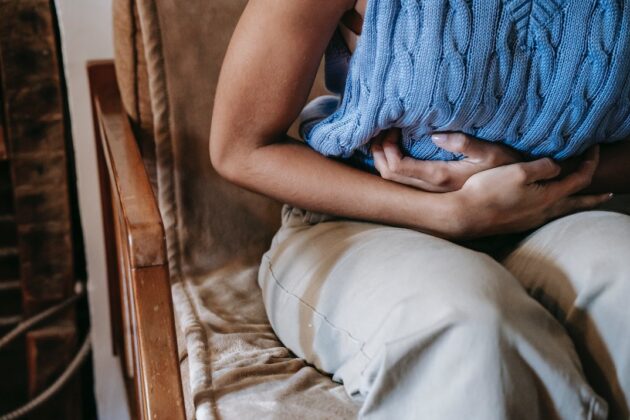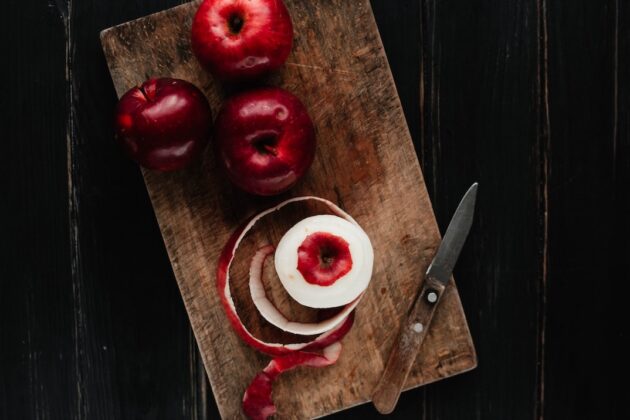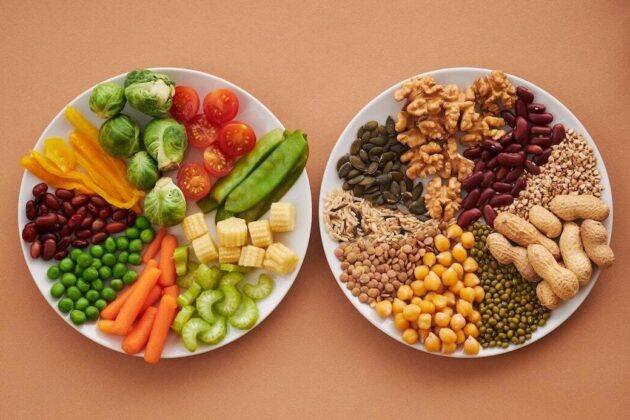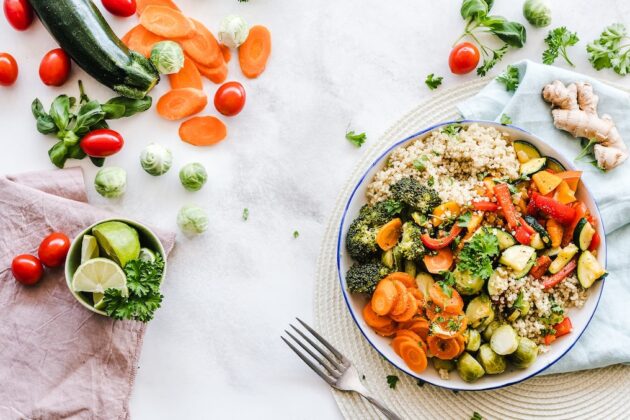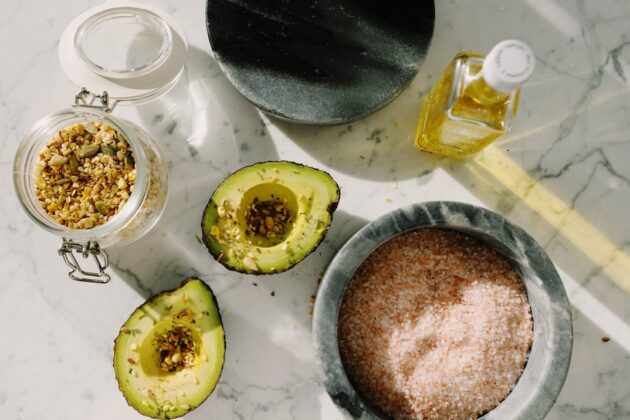Microscopic Colitis Disease Diet: Foods to Eat & Avoid with Lymphocytic & Collagenous Colitis
Microscopic colitis is a type of inflammatory bowel disease. It includes two subtypes: collagenous colitis and lymphocytic colitis. Both subtypes cause chronic inflammation in the colon, or the large intestine.
In the colon, there is a layer of connective tissue made up of collagen. When this becomes inflamed, it is called collagenous colitis. Lymphocytic colitis gets its name because it results from the build-up of white blood cells (lymphocytes) on the inner surface of the colon.
Both subtypes cause similar symptoms, with the most common being chronic, watery diarrhea. Some people with microscopic colitis may also experience nausea, abdominal pain or cramping, bloating, weight loss, and not being able to control bowel movements.
Most people with microscopic colitis benefit from eating a low-fiber, low-fat diet that avoids spicy foods, fried foods, and alcohol. Some people also benefit from eliminating dairy and gluten.
This guide goes over what a healthy diet for microscopic colitis looks like, including the best foods to eat, which to avoid, and more.
Microscopic colitis diet overview
While there is no specific diet for microscopic colitis, most people find that following a low-fiber, low-fat diet is beneficial. Foods that are typically eliminated from one’s diet are spicy foods, alcohol, fried foods, gluten, and dairy because they can often cause digestive issues.
The type of microscopic colitis you have does not necessarily determine which diet would be best for you. Understanding your symptoms and what triggers them is the most important part of managing microscopic colitis through diet.
Since everyone has different tolerances and preferences, it is important to learn what works best for you. Part of this is paying attention to the foods you eat and when your symptoms arise, which will help you identify your trigger foods.
There are several diets that are believed to help with inflammatory bowel disease. While some diets have been shown to improve symptoms, the same diet does not work for every situation. The best diet for microscopic colitis is one that avoids your trigger foods, meets your nutrition needs, and is realistic for you to follow.

Improve your gut health with support from a Registered Dietitian
90% of Zaya Care patients pay $0 for dietitian visits
Best foods to eat for microscopic colitis (lymphocytic & collagenous)
The best foods to eat for microscopic colitis are those that are easy for the body to digest, which are typically low in fat and fiber. What works best for you depends on your situation. Not everyone is affected the same way by specific foods, but these are foods many people can tolerate:
- White rice or pasta. White rice and white pasta are low in fiber and low in fat, making them easy to digest.
- Lean proteins. Consuming enough protein is an essential part of a healthy diet. Fatty meats take longer for the body to digest and may contribute to inflammation. Choose lean protein options such as skinless chicken, turkey, and fish.
- Potatoes. Potatoes (both sweet and regular) that are soft are typically well tolerated by people with microscopic colitis. Potatoes are a starch, which provides the body energy and other important nutrients for health.
- Eggs. Eggs are soft, easy to digest, and provide high-quality protein.
- Bananas. Bananas contain soluble fiber and prebiotics. Both are important for digestive health and can help ease symptoms like diarrhea.
- Applesauce. Because it does not contain the skin, applesauce is easier to digest than whole apples. You can still get some of the nutrients an apple provides without aggravating symptoms.
- White bread. White bread contains less fiber than whole grain bread. If you are experiencing symptoms, white bread would be a better choice for you to avoid making symptoms worse.
- Cooked or canned fruits and vegetables. Canned and cooked fruits and vegetables are typically softer and easier to digest compared to raw fruits and vegetables. Cooking vegetables until they are fork-tender helps your body digest them more easily, which can help prevent uncomfortable bloating and gas.
- Hydrating fluids. Dehydration is common among people with microscopic colitis because of the fluids lost through diarrhea. Drink a combination of hydrating fluids each day such as water, sports drinks, and broths.
- Low-fat dairy products or dairy alternatives. While some people with microscopic colitis may tolerate dairy, others find it triggers or worsens symptoms. If dairy is a trigger for you, choose dairy alternatives such as almond milk, coconut milk, or oat milk. If you can tolerate dairy, choose low-fat options to avoid triggering symptoms.
- Fruits with low insoluble fiber and residue. Insoluble fiber acts as a laxative because it helps food pass more quickly through the digestive system. This is not ideal if you have diarrhea. Insoluble fiber does not dissolve in water, so if a fruit or vegetable dissolves quickly, it is most likely low in insoluble fiber. Choose fruits like applesauce, ripe bananas, melon, canned fruits, and fruit juices to get key nutrients without worsening symptoms.
- Vegetables with low insoluble fiber and residue. As with fruits, vegetables that are low in insoluble fiber are recommended. Residue in fruits and vegetables are the solid, undigested contents that may end up in the large intestine such as seeds, skins, and peels. Beets, carrots, green beans, and squash are typically well-tolerated by people with microscopic colitis.
- Foods that are high in omega-3 fatty acids. The anti-inflammatory properties of omega-3 fatty acids may help with intestinal inflammation for those with inflammatory bowel disease. Food sources of omega-3 fatty acids include walnut butter, flaxseed oil, and fatty fish such as salmon, herring, and mackerel.
Sometimes, people with microscopic colitis experience a flare-up. This is when your symptoms have become active. In this case, your diet may become a little more restricted to prevent making symptoms worse.
While you are experiencing symptoms, stick to bland, low-fiber, low-fat foods until your symptoms resolve. Foods that can help during a flare-up include white rice, white bread, applesauce, and bananas.
>> Find a Colitis Nutritionist That Accepts Your Insurance
Foods to avoid with microscopic colitis (lymphocytic & collagenous)
Just as certain foods can help symptoms; others can trigger them. Spicy, high-fiber, and high-fat foods are often irritating to the intestines and are common foods that need to be avoided if you have microscopic colitis. These are common food triggers:
- Caffeinated drinks. Caffeine can stimulate your intestines, exacerbating symptoms of microscopic colitis, especially diarrhea. Opt for decaf coffee, tea, and other decaf beverages.
- Alcoholic beverages. Prospective research has shown that alcohol consumption may cause symptoms of inflammatory bowel disease to return. Alcohol also causes dehydration, which is common in those with microscopic colitis. For the best outcomes, it is best to avoid alcohol.
- Spicy foods. Many people with inflammatory bowel disease find that spicy foods worsen symptoms because they can irritate your intestines. Try to avoid foods with hot sauces, hot peppers, and cayenne pepper.
- Fatty or fried foods. Fried foods can be hard on your digestive system. Choose foods that are grilled, baked, or broiled to avoid excessive fat.
- Dairy products (if lactose intolerant). While some people can tolerate dairy products, others may experience worse symptoms if they consume dairy. It is best to avoid all dairy products like milk, cheese, yogurt, and ice cream especially if you have a lactose intolerance.
- High-fiber foods. Consuming too much fiber can aggravate abdominal cramping, bloating, and diarrhea. To avoid eating too much fiber, limit high-fiber foods like beans and lentils. If your symptoms have improved, you may slowly add more fiber back into your diet.
- Foods high in sugar. Consuming high amounts of sugar can cause inflammation and lead to symptoms of inflammatory bowel disease. Try to save desserts for special occasions and avoid sugar-sweetened beverages as much as possible.
- Gluten-containing foods (for those sensitive to gluten). As with dairy, some people with microscopic colitis can tolerate gluten. However, for those who have a gluten sensitivity, consuming foods like bread, pasta, cereal, and bakery items can aggravate symptoms.
- Foods high in FODMAPs. FODMAP is a term that stands for a group of carbohydrates that can be hard for the body to digest. If you are experiencing symptoms, you may need to temporarily avoid high FODMAP foods which include dairy, beans, lentils, wheat, rye, and certain fruits and vegetables.
- Nuts and seeds. Nuts and seeds are rich in fiber and in fat. While they do provide several health benefits, they may be difficult to digest for someone with microscopic colitis.
- Certain raw vegetables. Certain raw vegetables can cause excess gas and abdominal discomfort. Raw vegetables such as broccoli, cabbage, onions, and celery should be avoided to prevent symptoms.
- Processed foods. Highly processed foods often contain ingredients that contribute to intestinal inflammation. In addition, many processed foods like chips, hotdogs, sweetened breakfast cereals, and some frozen meals lack key nutrients that are important for your health.
- Certain artificial sweeteners. Artificial sweeteners (such as sucralose and aspartame) are commonly used to provide a sweet taste without extra sugar. Although some people use them as an alternative to sugar to avoid added calories, they may induce intestinal inflammation and cause digestive upset. If you struggle with symptoms, be cautious of sugar substitutes (Splenda, Equal, Sweet’N Low, etc.), diet sodas and teas, energy drinks, protein bars, and foods labeled “sugar-free.”
Example microscopic colitis meal plan
Here is a sample 1,800-calorie diet that includes foods that can help with microscopic colitis disease while avoiding those that can make it worse. Note that the following is just an example. It’s important to consult with your doctor or nutritionist to make sure you’re eating the correct foods for your specific situation.
Breakfast:
- Oatmeal made with water (not milk) with a teaspoon of honey and a handful of blueberries (220 calories)
- A slice of gluten-free toast with a teaspoon of margarine (150 calories)
- A cup of herbal tea or decaffeinated coffee (0 calories)
Morning Snack:
- A medium banana (105 calories)
Lunch:
- Grilled chicken breast with a side of steamed carrots and quinoa (370 calories)
- A cup of homemade bone broth (80 calories)
Afternoon Snack:
- A cup of unsweetened applesauce (100 calories)
Dinner:
- Baked salmon with lemon, served with mashed sweet potato and steamed zucchini (530 calories)
- A small side salad with romaine lettuce, cucumbers, cherry tomatoes, and a drizzle of balsamic vinaigrette (110 calories)
Evening Snack:
- Rice cakes with a thin layer of almond butter (200 calories)

Improve your gut health with support from a Registered Dietitian
90% of Zaya Care patients pay $0 for dietitian visits
Identifying trigger foods with microscopic colitis
Trigger foods cause or worsen symptoms of microscopic colitis immediately after you consume them. Some common trigger foods include dairy, gluten, and high-fat foods. However, not everyone responds the same way to these foods.
Knowing which foods trigger your symptoms starts with paying close attention to what you are eating and when your symptoms occur. You may need to document everything you eat in a food diary and document when symptoms flare up to determine which foods trigger your symptoms.
Some people may also need to follow an elimination diet for a certain period of time. If you suspect a certain type of food triggers your symptoms, eliminating that food from your diet for a few weeks can help you determine if that food is causing you issues.
When you have identified your trigger foods, you may need to limit or completely avoid those foods long-term to prevent symptoms. You may find it helpful to work with a nutrition professional to help you plan healthy meals that you enjoy and that avoid your trigger foods.
Reviewing specific diets and their effectiveness at treating microscopic colitis
Researchers have investigated the potential effectiveness of many different diets for inflammatory bowel disease. Every diet has its pros and cons, and there is no perfect diet for people with microscopic colitis.
If you are thinking about trying a specific diet to manage your symptoms, you may find it helpful to seek professional guidance. Remember, what works for another person might not work for you. What matters the most is your individual tolerances, preferences, proper education, and long-term adherence.
Low FODMAP diet
The term “FODMAP” is an acronym for a group of carbohydrates that are believed to be hard for the body to digest and that lead to digestive issues. Foods that contain these carbohydrates include dairy, certain fruits and vegetables, wheat and rye products, and artificial sweeteners.
The low FODMAP diet starts with an elimination phase, where all “high FODMAP” foods are eliminated for a period of time. After symptoms resolve, foods are slowly added back into the diet as tolerated.
This diet may help identify specific trigger foods, but it must be followed properly. Because it is so restrictive, the low FODMAP diet can be challenging to follow and may put people at risk for nutrition deficiencies.
Low FODMAP is a popular diet for those with ulcerative colitis as well.
Low residue diet
Residue is any undigested contents from food that is left in the digestive tract. Clinicians may recommend a low-residue diet to decrease the number of bowel movements and ease diarrhea, bloating, and stomach cramping.
While on a low-residue diet, a person can have refined grains (white bread, white pasta, and white rice), well-cooked or canned vegetables, skinless and seedless fruits, meat, seafood, and eggs. Foods that are not allowed include nuts, seeds, dried fruits, raw vegetables, fruit juices with pulp, and caffeine.
A low-residue diet may be beneficial for patients with microscopic colitis to help ease symptoms. However, this diet does have a lot of restrictions and may require supervision by a physician or registered dietitian to ensure patient adherence.
Paleo diet
The paleo diet is an eating pattern that is based on what humans were believed to eat during the Paleolithic Era. The idea behind this diet is that human genes are not well-adjusted to modern diets, so it includes only foods that could be hunted or gathered in the past.
Foods included on the paleo diet are all fruits, vegetables, lean meats, fish, eggs, nuts, and seeds. All grains, legumes, sugar, and dairy products are excluded. Since dairy and gluten are excluded, following this diet pattern may be beneficial to you if you know these trigger your symptoms.
However, research has not yet shown that this is an effective diet in treating symptoms of microscopic colitis. Sticking to this diet-long term may also be an issue because food choices are limited.
AIP diet
The AIP (Autoimmune Protocol) diet is aimed at reducing intestinal inflammation by eliminating inflammatory foods. Grains, legumes, dairy, eggs, food additives, refined sugar, alcohol, coffee, nuts, seeds, and certain vegetables are avoided on this diet.
During the elimination phase, fresh fruit, bone broth, and minimally processed meats are allowed. Eliminated foods can be slowly re-introduced as symptoms resolve. If symptoms return after a certain food is consumed, that food should be avoided long-term.
Research on the AIP diet is limited but results appear promising. However, because this diet is extremely restrictive in the beginning, it is best to seek expert guidance to avoid nutrition deficiencies.
Gluten-free diet
Gluten is naturally found in foods that contain wheat, rye, and barley. This includes pasta, bread, cereal, crackers, and bakery items. A gluten-free diet eliminates these foods and often replaces them with gluten-free versions.
For those who have gluten sensitivity, consuming gluten may trigger or worsen symptoms. In a 2015 cross-sectional study, 314 participants with an inflammatory bowel disease attempted a gluten-free diet, and 65.5% of those participants reported improvements in symptoms.
The link between gluten and microscopic colitis remains unclear. While more research is needed to determine the effectiveness of the gluten-free diet, it is relatively safe and less restrictive compared to other diets.
Lactose-free diet
Some people with microscopic colitis do not tolerate lactose. Lactose is the sugar found in dairy products like milk, yogurt, ice cream, and cheese. Following a lactose-free diet means excluding those foods and replacing them with dairy-free alternatives.
People who are lactose intolerant are missing the digestive enzyme lactase, which breaks down lactose in the body. One study from 2015 indicated a possible association between lymphocytic colitis and lactase deficiency in children.
Following a lactose-free diet can significantly improve symptoms of microscopic colitis for those with lactose intolerance. However, this diet is not the most effective in treating symptoms for everyone since individual tolerances vary.
Specific carbohydrate diet
Some people with digestive disorders are not able to break down certain carbohydrates. In theory, carbohydrates that are not digested properly may cause an overgrowth of harmful bacteria, which leads to intestinal inflammation.
To prevent a bacterial imbalance in your intestines, the specific carbohydrate diet focuses on carbohydrates that are easy to digest. It is essentially grain-free, dairy-free, and low in sugar. Foods allowed include fruit, honey, and most vegetables. You can also eat meat, poultry, fish, eggs, and nuts on this diet.
While there is limited evidence, some researchers believe it can help reduce symptoms of microscopic colitis. However, participants in a 2021 study reported that this diet is difficult to follow. Because food choices are so limited, this diet may not be the best choice for some individuals.
>> Find a Colitis Nutritionist That Accepts Your Insurance
Tips for a healthy microscopic colitis diet & lifestyle
Managing microscopic colitis goes beyond medication. Diet and lifestyle habits can make a big difference in disease outcomes. Not everyone experiences microscopic colitis the same, so it is important to learn and understand what works for you.
- Keep a food diary to identify trigger foods. Writing down everything you eat and your symptoms in a food diary can help you identify which foods trigger your symptoms. This way, you will learn which foods may need to be eliminated from your diet.
- Hydrate. Dehydration is common among people with microscopic colitis because of the fluids lost through diarrhea. Whether you are experiencing symptoms or not, it is important to drink plenty of fluids to avoid dehydration from happening.
- Eat smaller, more frequent meals. Spacing out meals throughout the day may prevent you from feeling too full and help ease symptoms.
- Meal prep. Preparing your meals in advance can make it easier to stick to your diet, especially if you have restrictions. It is also a good way to ensure you maintain healthy eating habits and can help you lose weight if that’s your goal.
- Exercise regularly. Moderate-intensity exercise, such as biking or walking, has no negative effects on people with inflammatory bowel disease and may also reduce stress and improve quality of life.
- Get plenty of sleep. Studies have shown that lack of sleep can contribute to inflammation and poor outcomes for people with inflammatory bowel disease. Try to stick to the same bedtime to ensure you get the general recommendation of at least seven hours each night.
- Manage stress. Chronic stress has been linked to digestive issues. Sufficient evidence has shown that stress management, such as doing regular relaxation exercises, is beneficial to patients with inflammatory bowel disease.
- Avoid smoking. Studies have concluded that smoking worsens symptoms of collagenous colitis. If you currently smoke, quitting can help improve your outcomes of microscopic colitis.
- Consider supplementation. Because following a diet for microscopic colitis may mean having lots of food restrictions, you may be missing out on key nutrients. To ensure you are getting all the nutrients you need, consider taking nutrition supplements. Make sure to ask your doctor before taking any supplements.
- Take your medications. Depending on your situation, your doctor may prescribe medications such as anti-inflammatory medications, anti-diarrheal medications, or steroids. To help keep your symptoms under control, take your medications as prescribed.
- Work with a microscopic colitis nutritionist. A microscopic colitis nutritionist can guide you into making the proper food choices based on your symptoms and your unique situation.
Why you should consider working with a microscopic colitis nutritionist
Resolving symptoms of microscopic colitis through diet is possible. However, figuring out what to eat can be difficult to do on your own. Seeking help from a microscopic colitis nutritionist can be very beneficial to you and your health.
A microscopic colitis nutritionist can assist you in identifying foods that cause issues for you. A nutritionist can also help you choose the best alternatives to your trigger foods. By working with a microscopic nutritionist, you will gain more confidence in making choices around foods.
A nutritionist can work with you to develop a personal plan that excludes all trigger foods and that you can stick to long-term. A nutritionist can also identify any nutritional gaps in your diet and provide guidance to make sure you are consuming key nutrients every day.
Here at Zaya Care, we can match you with Colitis Nutritionists who are covered by your insurance. You can browse our network of nutritionists and filter by things like visit type, languages spoken, insurance accepted, and more to find your fit.
Microscopic colitis FAQs
Can microscopic colitis be cured with diet?
While there is no specific diet that is known to cure microscopic colitis, choosing the right foods can certainly help improve symptoms and outcomes.
Can I drink alcohol if I have colitis?
Alcohol is not a good choice for someone with microscopic colitis because it can lead to dehydration and worsen symptoms. It is currently recommended to avoid as much as possible. If you drink alcohol, ask your doctor what a good limit is for you.
Can I eat salad if I have microscopic colitis?
Most salads are packed with high-fiber ingredients that may trigger symptoms of microscopic colitis. If you enjoy salads, choose vegetables that are typically well-tolerated, such as lettuce and carrots. To avoid excess fat, top your salad with a lean protein source and a low-fat or light dressing.
Can soup help with microscopic colitis?
Creamy soups are not ideal if you struggle with symptoms because of the high fat content. However, broth-based soups can help you stay hydrated and are easy to digest if they contain lean meats and vegetables like carrots, green beans, and squash. Avoid high-fiber soups made with beans and lentils.
What is the best diet for microscopic colitis?
There is no single diet that is recommended for everyone with microscopic colitis. If you struggle with microscopic colitis, the best diet for you will depend on your symptoms, food tolerances, and your personal preferences.

Improve your gut health with support from a Registered Dietitian
90% of Zaya Care patients pay $0 for dietitian visits
Microscopic colitis is a type of inflammatory bowel disease. It includes two subtypes: collagenous colitis and lymphocytic colitis. Both subtypes cause chronic inflammation in the colon, or the large intestine.
In the colon, there is a layer of connective tissue made up of collagen. When this becomes inflamed, it is called collagenous colitis. Lymphocytic colitis gets its name because it results from the build-up of white blood cells (lymphocytes) on the inner surface of the colon.
Both subtypes cause similar symptoms, with the most common being chronic, watery diarrhea. Some people with microscopic colitis may also experience nausea, abdominal pain or cramping, bloating, weight loss, and not being able to control bowel movements.
Most people with microscopic colitis benefit from eating a low-fiber, low-fat diet that avoids spicy foods, fried foods, and alcohol. Some people also benefit from eliminating dairy and gluten.
This guide goes over what a healthy diet for microscopic colitis looks like, including the best foods to eat, which to avoid, and more.
Microscopic colitis diet overview
While there is no specific diet for microscopic colitis, most people find that following a low-fiber, low-fat diet is beneficial. Foods that are typically eliminated from one’s diet are spicy foods, alcohol, fried foods, gluten, and dairy because they can often cause digestive issues.
The type of microscopic colitis you have does not necessarily determine which diet would be best for you. Understanding your symptoms and what triggers them is the most important part of managing microscopic colitis through diet.
Since everyone has different tolerances and preferences, it is important to learn what works best for you. Part of this is paying attention to the foods you eat and when your symptoms arise, which will help you identify your trigger foods.
There are several diets that are believed to help with inflammatory bowel disease. While some diets have been shown to improve symptoms, the same diet does not work for every situation. The best diet for microscopic colitis is one that avoids your trigger foods, meets your nutrition needs, and is realistic for you to follow.

Improve your gut health with support from a Registered Dietitian
90% of Zaya Care patients pay $0 for dietitian visits
Best foods to eat for microscopic colitis (lymphocytic & collagenous)
The best foods to eat for microscopic colitis are those that are easy for the body to digest, which are typically low in fat and fiber. What works best for you depends on your situation. Not everyone is affected the same way by specific foods, but these are foods many people can tolerate:
- White rice or pasta. White rice and white pasta are low in fiber and low in fat, making them easy to digest.
- Lean proteins. Consuming enough protein is an essential part of a healthy diet. Fatty meats take longer for the body to digest and may contribute to inflammation. Choose lean protein options such as skinless chicken, turkey, and fish.
- Potatoes. Potatoes (both sweet and regular) that are soft are typically well tolerated by people with microscopic colitis. Potatoes are a starch, which provides the body energy and other important nutrients for health.
- Eggs. Eggs are soft, easy to digest, and provide high-quality protein.
- Bananas. Bananas contain soluble fiber and prebiotics. Both are important for digestive health and can help ease symptoms like diarrhea.
- Applesauce. Because it does not contain the skin, applesauce is easier to digest than whole apples. You can still get some of the nutrients an apple provides without aggravating symptoms.
- White bread. White bread contains less fiber than whole grain bread. If you are experiencing symptoms, white bread would be a better choice for you to avoid making symptoms worse.
- Cooked or canned fruits and vegetables. Canned and cooked fruits and vegetables are typically softer and easier to digest compared to raw fruits and vegetables. Cooking vegetables until they are fork-tender helps your body digest them more easily, which can help prevent uncomfortable bloating and gas.
- Hydrating fluids. Dehydration is common among people with microscopic colitis because of the fluids lost through diarrhea. Drink a combination of hydrating fluids each day such as water, sports drinks, and broths.
- Low-fat dairy products or dairy alternatives. While some people with microscopic colitis may tolerate dairy, others find it triggers or worsens symptoms. If dairy is a trigger for you, choose dairy alternatives such as almond milk, coconut milk, or oat milk. If you can tolerate dairy, choose low-fat options to avoid triggering symptoms.
- Fruits with low insoluble fiber and residue. Insoluble fiber acts as a laxative because it helps food pass more quickly through the digestive system. This is not ideal if you have diarrhea. Insoluble fiber does not dissolve in water, so if a fruit or vegetable dissolves quickly, it is most likely low in insoluble fiber. Choose fruits like applesauce, ripe bananas, melon, canned fruits, and fruit juices to get key nutrients without worsening symptoms.
- Vegetables with low insoluble fiber and residue. As with fruits, vegetables that are low in insoluble fiber are recommended. Residue in fruits and vegetables are the solid, undigested contents that may end up in the large intestine such as seeds, skins, and peels. Beets, carrots, green beans, and squash are typically well-tolerated by people with microscopic colitis.
- Foods that are high in omega-3 fatty acids. The anti-inflammatory properties of omega-3 fatty acids may help with intestinal inflammation for those with inflammatory bowel disease. Food sources of omega-3 fatty acids include walnut butter, flaxseed oil, and fatty fish such as salmon, herring, and mackerel.
Sometimes, people with microscopic colitis experience a flare-up. This is when your symptoms have become active. In this case, your diet may become a little more restricted to prevent making symptoms worse.
While you are experiencing symptoms, stick to bland, low-fiber, low-fat foods until your symptoms resolve. Foods that can help during a flare-up include white rice, white bread, applesauce, and bananas.
>> Find a Colitis Nutritionist That Accepts Your Insurance
Foods to avoid with microscopic colitis (lymphocytic & collagenous)
Just as certain foods can help symptoms; others can trigger them. Spicy, high-fiber, and high-fat foods are often irritating to the intestines and are common foods that need to be avoided if you have microscopic colitis. These are common food triggers:
- Caffeinated drinks. Caffeine can stimulate your intestines, exacerbating symptoms of microscopic colitis, especially diarrhea. Opt for decaf coffee, tea, and other decaf beverages.
- Alcoholic beverages. Prospective research has shown that alcohol consumption may cause symptoms of inflammatory bowel disease to return. Alcohol also causes dehydration, which is common in those with microscopic colitis. For the best outcomes, it is best to avoid alcohol.
- Spicy foods. Many people with inflammatory bowel disease find that spicy foods worsen symptoms because they can irritate your intestines. Try to avoid foods with hot sauces, hot peppers, and cayenne pepper.
- Fatty or fried foods. Fried foods can be hard on your digestive system. Choose foods that are grilled, baked, or broiled to avoid excessive fat.
- Dairy products (if lactose intolerant). While some people can tolerate dairy products, others may experience worse symptoms if they consume dairy. It is best to avoid all dairy products like milk, cheese, yogurt, and ice cream especially if you have a lactose intolerance.
- High-fiber foods. Consuming too much fiber can aggravate abdominal cramping, bloating, and diarrhea. To avoid eating too much fiber, limit high-fiber foods like beans and lentils. If your symptoms have improved, you may slowly add more fiber back into your diet.
- Foods high in sugar. Consuming high amounts of sugar can cause inflammation and lead to symptoms of inflammatory bowel disease. Try to save desserts for special occasions and avoid sugar-sweetened beverages as much as possible.
- Gluten-containing foods (for those sensitive to gluten). As with dairy, some people with microscopic colitis can tolerate gluten. However, for those who have a gluten sensitivity, consuming foods like bread, pasta, cereal, and bakery items can aggravate symptoms.
- Foods high in FODMAPs. FODMAP is a term that stands for a group of carbohydrates that can be hard for the body to digest. If you are experiencing symptoms, you may need to temporarily avoid high FODMAP foods which include dairy, beans, lentils, wheat, rye, and certain fruits and vegetables.
- Nuts and seeds. Nuts and seeds are rich in fiber and in fat. While they do provide several health benefits, they may be difficult to digest for someone with microscopic colitis.
- Certain raw vegetables. Certain raw vegetables can cause excess gas and abdominal discomfort. Raw vegetables such as broccoli, cabbage, onions, and celery should be avoided to prevent symptoms.
- Processed foods. Highly processed foods often contain ingredients that contribute to intestinal inflammation. In addition, many processed foods like chips, hotdogs, sweetened breakfast cereals, and some frozen meals lack key nutrients that are important for your health.
- Certain artificial sweeteners. Artificial sweeteners (such as sucralose and aspartame) are commonly used to provide a sweet taste without extra sugar. Although some people use them as an alternative to sugar to avoid added calories, they may induce intestinal inflammation and cause digestive upset. If you struggle with symptoms, be cautious of sugar substitutes (Splenda, Equal, Sweet’N Low, etc.), diet sodas and teas, energy drinks, protein bars, and foods labeled “sugar-free.”
Example microscopic colitis meal plan
Here is a sample 1,800-calorie diet that includes foods that can help with microscopic colitis disease while avoiding those that can make it worse. Note that the following is just an example. It’s important to consult with your doctor or nutritionist to make sure you’re eating the correct foods for your specific situation.
Breakfast:
- Oatmeal made with water (not milk) with a teaspoon of honey and a handful of blueberries (220 calories)
- A slice of gluten-free toast with a teaspoon of margarine (150 calories)
- A cup of herbal tea or decaffeinated coffee (0 calories)
Morning Snack:
- A medium banana (105 calories)
Lunch:
- Grilled chicken breast with a side of steamed carrots and quinoa (370 calories)
- A cup of homemade bone broth (80 calories)
Afternoon Snack:
- A cup of unsweetened applesauce (100 calories)
Dinner:
- Baked salmon with lemon, served with mashed sweet potato and steamed zucchini (530 calories)
- A small side salad with romaine lettuce, cucumbers, cherry tomatoes, and a drizzle of balsamic vinaigrette (110 calories)
Evening Snack:
- Rice cakes with a thin layer of almond butter (200 calories)

Improve your gut health with support from a Registered Dietitian
90% of Zaya Care patients pay $0 for dietitian visits
Identifying trigger foods with microscopic colitis
Trigger foods cause or worsen symptoms of microscopic colitis immediately after you consume them. Some common trigger foods include dairy, gluten, and high-fat foods. However, not everyone responds the same way to these foods.
Knowing which foods trigger your symptoms starts with paying close attention to what you are eating and when your symptoms occur. You may need to document everything you eat in a food diary and document when symptoms flare up to determine which foods trigger your symptoms.
Some people may also need to follow an elimination diet for a certain period of time. If you suspect a certain type of food triggers your symptoms, eliminating that food from your diet for a few weeks can help you determine if that food is causing you issues.
When you have identified your trigger foods, you may need to limit or completely avoid those foods long-term to prevent symptoms. You may find it helpful to work with a nutrition professional to help you plan healthy meals that you enjoy and that avoid your trigger foods.
Reviewing specific diets and their effectiveness at treating microscopic colitis
Researchers have investigated the potential effectiveness of many different diets for inflammatory bowel disease. Every diet has its pros and cons, and there is no perfect diet for people with microscopic colitis.
If you are thinking about trying a specific diet to manage your symptoms, you may find it helpful to seek professional guidance. Remember, what works for another person might not work for you. What matters the most is your individual tolerances, preferences, proper education, and long-term adherence.
Low FODMAP diet
The term “FODMAP” is an acronym for a group of carbohydrates that are believed to be hard for the body to digest and that lead to digestive issues. Foods that contain these carbohydrates include dairy, certain fruits and vegetables, wheat and rye products, and artificial sweeteners.
The low FODMAP diet starts with an elimination phase, where all “high FODMAP” foods are eliminated for a period of time. After symptoms resolve, foods are slowly added back into the diet as tolerated.
This diet may help identify specific trigger foods, but it must be followed properly. Because it is so restrictive, the low FODMAP diet can be challenging to follow and may put people at risk for nutrition deficiencies.
Low FODMAP is a popular diet for those with ulcerative colitis as well.
Low residue diet
Residue is any undigested contents from food that is left in the digestive tract. Clinicians may recommend a low-residue diet to decrease the number of bowel movements and ease diarrhea, bloating, and stomach cramping.
While on a low-residue diet, a person can have refined grains (white bread, white pasta, and white rice), well-cooked or canned vegetables, skinless and seedless fruits, meat, seafood, and eggs. Foods that are not allowed include nuts, seeds, dried fruits, raw vegetables, fruit juices with pulp, and caffeine.
A low-residue diet may be beneficial for patients with microscopic colitis to help ease symptoms. However, this diet does have a lot of restrictions and may require supervision by a physician or registered dietitian to ensure patient adherence.
Paleo diet
The paleo diet is an eating pattern that is based on what humans were believed to eat during the Paleolithic Era. The idea behind this diet is that human genes are not well-adjusted to modern diets, so it includes only foods that could be hunted or gathered in the past.
Foods included on the paleo diet are all fruits, vegetables, lean meats, fish, eggs, nuts, and seeds. All grains, legumes, sugar, and dairy products are excluded. Since dairy and gluten are excluded, following this diet pattern may be beneficial to you if you know these trigger your symptoms.
However, research has not yet shown that this is an effective diet in treating symptoms of microscopic colitis. Sticking to this diet-long term may also be an issue because food choices are limited.
AIP diet
The AIP (Autoimmune Protocol) diet is aimed at reducing intestinal inflammation by eliminating inflammatory foods. Grains, legumes, dairy, eggs, food additives, refined sugar, alcohol, coffee, nuts, seeds, and certain vegetables are avoided on this diet.
During the elimination phase, fresh fruit, bone broth, and minimally processed meats are allowed. Eliminated foods can be slowly re-introduced as symptoms resolve. If symptoms return after a certain food is consumed, that food should be avoided long-term.
Research on the AIP diet is limited but results appear promising. However, because this diet is extremely restrictive in the beginning, it is best to seek expert guidance to avoid nutrition deficiencies.
Gluten-free diet
Gluten is naturally found in foods that contain wheat, rye, and barley. This includes pasta, bread, cereal, crackers, and bakery items. A gluten-free diet eliminates these foods and often replaces them with gluten-free versions.
For those who have gluten sensitivity, consuming gluten may trigger or worsen symptoms. In a 2015 cross-sectional study, 314 participants with an inflammatory bowel disease attempted a gluten-free diet, and 65.5% of those participants reported improvements in symptoms.
The link between gluten and microscopic colitis remains unclear. While more research is needed to determine the effectiveness of the gluten-free diet, it is relatively safe and less restrictive compared to other diets.
Lactose-free diet
Some people with microscopic colitis do not tolerate lactose. Lactose is the sugar found in dairy products like milk, yogurt, ice cream, and cheese. Following a lactose-free diet means excluding those foods and replacing them with dairy-free alternatives.
People who are lactose intolerant are missing the digestive enzyme lactase, which breaks down lactose in the body. One study from 2015 indicated a possible association between lymphocytic colitis and lactase deficiency in children.
Following a lactose-free diet can significantly improve symptoms of microscopic colitis for those with lactose intolerance. However, this diet is not the most effective in treating symptoms for everyone since individual tolerances vary.
Specific carbohydrate diet
Some people with digestive disorders are not able to break down certain carbohydrates. In theory, carbohydrates that are not digested properly may cause an overgrowth of harmful bacteria, which leads to intestinal inflammation.
To prevent a bacterial imbalance in your intestines, the specific carbohydrate diet focuses on carbohydrates that are easy to digest. It is essentially grain-free, dairy-free, and low in sugar. Foods allowed include fruit, honey, and most vegetables. You can also eat meat, poultry, fish, eggs, and nuts on this diet.
While there is limited evidence, some researchers believe it can help reduce symptoms of microscopic colitis. However, participants in a 2021 study reported that this diet is difficult to follow. Because food choices are so limited, this diet may not be the best choice for some individuals.
>> Find a Colitis Nutritionist That Accepts Your Insurance
Tips for a healthy microscopic colitis diet & lifestyle
Managing microscopic colitis goes beyond medication. Diet and lifestyle habits can make a big difference in disease outcomes. Not everyone experiences microscopic colitis the same, so it is important to learn and understand what works for you.
- Keep a food diary to identify trigger foods. Writing down everything you eat and your symptoms in a food diary can help you identify which foods trigger your symptoms. This way, you will learn which foods may need to be eliminated from your diet.
- Hydrate. Dehydration is common among people with microscopic colitis because of the fluids lost through diarrhea. Whether you are experiencing symptoms or not, it is important to drink plenty of fluids to avoid dehydration from happening.
- Eat smaller, more frequent meals. Spacing out meals throughout the day may prevent you from feeling too full and help ease symptoms.
- Meal prep. Preparing your meals in advance can make it easier to stick to your diet, especially if you have restrictions. It is also a good way to ensure you maintain healthy eating habits and can help you lose weight if that’s your goal.
- Exercise regularly. Moderate-intensity exercise, such as biking or walking, has no negative effects on people with inflammatory bowel disease and may also reduce stress and improve quality of life.
- Get plenty of sleep. Studies have shown that lack of sleep can contribute to inflammation and poor outcomes for people with inflammatory bowel disease. Try to stick to the same bedtime to ensure you get the general recommendation of at least seven hours each night.
- Manage stress. Chronic stress has been linked to digestive issues. Sufficient evidence has shown that stress management, such as doing regular relaxation exercises, is beneficial to patients with inflammatory bowel disease.
- Avoid smoking. Studies have concluded that smoking worsens symptoms of collagenous colitis. If you currently smoke, quitting can help improve your outcomes of microscopic colitis.
- Consider supplementation. Because following a diet for microscopic colitis may mean having lots of food restrictions, you may be missing out on key nutrients. To ensure you are getting all the nutrients you need, consider taking nutrition supplements. Make sure to ask your doctor before taking any supplements.
- Take your medications. Depending on your situation, your doctor may prescribe medications such as anti-inflammatory medications, anti-diarrheal medications, or steroids. To help keep your symptoms under control, take your medications as prescribed.
- Work with a microscopic colitis nutritionist. A microscopic colitis nutritionist can guide you into making the proper food choices based on your symptoms and your unique situation.
Why you should consider working with a microscopic colitis nutritionist
Resolving symptoms of microscopic colitis through diet is possible. However, figuring out what to eat can be difficult to do on your own. Seeking help from a microscopic colitis nutritionist can be very beneficial to you and your health.
A microscopic colitis nutritionist can assist you in identifying foods that cause issues for you. A nutritionist can also help you choose the best alternatives to your trigger foods. By working with a microscopic nutritionist, you will gain more confidence in making choices around foods.
A nutritionist can work with you to develop a personal plan that excludes all trigger foods and that you can stick to long-term. A nutritionist can also identify any nutritional gaps in your diet and provide guidance to make sure you are consuming key nutrients every day.
Here at Zaya Care, we can match you with Colitis Nutritionists who are covered by your insurance. You can browse our network of nutritionists and filter by things like visit type, languages spoken, insurance accepted, and more to find your fit.
Microscopic colitis FAQs
Can microscopic colitis be cured with diet?
While there is no specific diet that is known to cure microscopic colitis, choosing the right foods can certainly help improve symptoms and outcomes.
Can I drink alcohol if I have colitis?
Alcohol is not a good choice for someone with microscopic colitis because it can lead to dehydration and worsen symptoms. It is currently recommended to avoid as much as possible. If you drink alcohol, ask your doctor what a good limit is for you.
Can I eat salad if I have microscopic colitis?
Most salads are packed with high-fiber ingredients that may trigger symptoms of microscopic colitis. If you enjoy salads, choose vegetables that are typically well-tolerated, such as lettuce and carrots. To avoid excess fat, top your salad with a lean protein source and a low-fat or light dressing.
Can soup help with microscopic colitis?
Creamy soups are not ideal if you struggle with symptoms because of the high fat content. However, broth-based soups can help you stay hydrated and are easy to digest if they contain lean meats and vegetables like carrots, green beans, and squash. Avoid high-fiber soups made with beans and lentils.
What is the best diet for microscopic colitis?
There is no single diet that is recommended for everyone with microscopic colitis. If you struggle with microscopic colitis, the best diet for you will depend on your symptoms, food tolerances, and your personal preferences.

Improve your gut health with support from a Registered Dietitian
90% of Zaya Care patients pay $0 for dietitian visits





